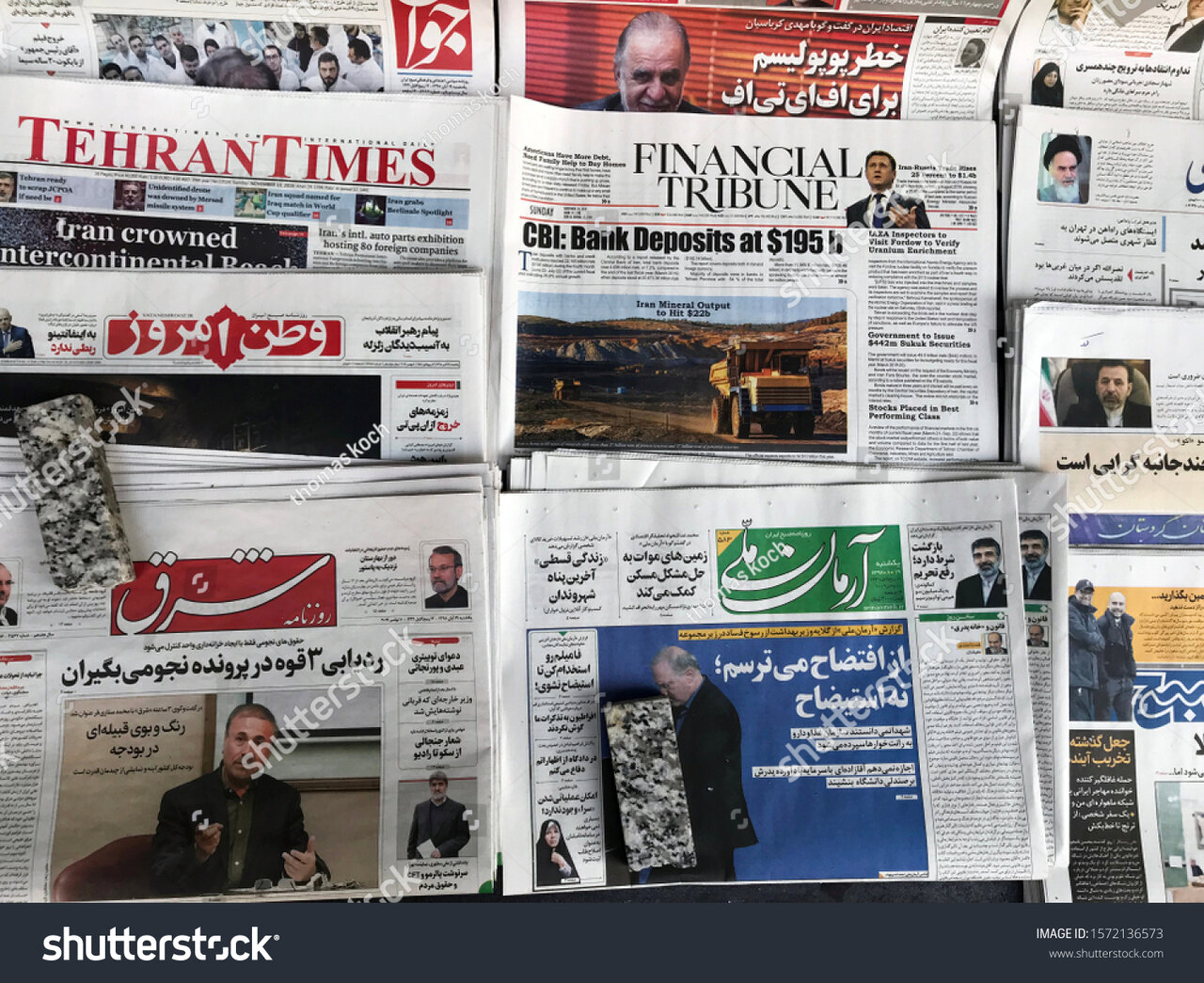Enemies' anger at progress of Iranian women

In a report, Hamshahri discussed the interview of the president's wife with the Venezuelan media and reactions to it.
It wrote: The active presence of the president's wife on a trip to Latin America in the form of an educated Iranian woman wearing a hijab has made enemies angry. The trip of the head of the 13th government to three Latin American countries (Venezuela, Nicaragua, and Cuba) had an important result, along with all its political and economic achievements. It revealed the anti-human actions of the West towards women. Their move was revealed once again with the cyberattacks on Jamileh Alamolhoda, the wife of the Iranian president, in recent days.
The active presence of Jamileh Alamolhoda during the trip, which included various programs coupled with her defense of the identity of Iranian women, was not welcomed by the hostile media and caused a cyberattack on her. But what did she say that caused among Iran's enemies? The answer is the brilliance of the "Iranian woman" that was exemplified by the president's wife and the issues that she raised. Carrying out diplomatic programs during the president's trip as an educated woman wearing a hijab, as well as revealing the anti-woman attitude of the West and defending the Iranian woman's identity, caused the enemies to launch a cyberattack against Jamileh Alamolhoda.
Kayhan: How did America's pressure end up begging?
Kayhan dedicated its editorial to the nuclear negotiations and said: An interim agreement will not allow the U.S. to become a member of the JCPOA without compensating for the damages or gaining access to a trigger mechanism. That is why our country's permanent mission to the United Nations declared: "No interim agreement is on the agenda as a replacement for the JCPOA".
America and the European troika have inflicted economic costs on Iran by breaking their agreement, and to revive the JCPOA, they must provide a valid guarantee for the permanent lifting of sanctions while compensating for the losses.
The Obama government managed to close or suspend 95% of Iran's nuclear program through the JCPOA, and it maintained the levers of sanctions pressure and gradually expanded them after the JCPOA. Upon withdrawing from the JCPOA, the Trump government demanded the complete surrender of Iran.
According to American media reports, the Biden government wants Iran not to enrich uranium above 60% or carry out proxy attacks against American forces in the region in exchange for releasing its blocked financial assets and should not continue providing arms to Russia. Now a BBC expert says: "The Americans have agreed to 60% enrichment beyond the JCPOA". Michael McCall, the chairman of the Foreign Relations Committee of the U.S. House of Representatives, warns that "the Biden government is rewarding Iran and has failed to use diplomatic leverage and deterrence to prevent the activities of the Islamic Republic."
Iran: Coalition for peace and development
In its editorial, the Iran newspaper addressed remarks by Alireza Enayati, the director general of the Persian Gulf department at the Foreign Ministry. It wrote: The return of relations between Iran and Saudi Arabia to its normal course and the visit of the Saudi Foreign Minister to Tehran is another link of the success of the principle of neighborliness. In the past two years, the neighborhood policy in the Persian Gulf region has led to the development and deepening of relations with the southern neighboring countries of Iran.
One of the foreign policy strategies of Iran since the beginning of the revolution has been the strategy of strengthening relations with the countries in the West Asia region and the larger Islamic world.
Continuing this strategy in the form of policies and initiatives during different periods has been a sign of Iran's determination to strengthen and deepen commonalities and clear up misunderstandings.
The regional policy of the Islamic Republic has enjoyed relative continuity over the past four decades. Strengthening dialogue-based and cooperation-based mechanisms, resolving misunderstandings, focusing on affinities, good neighborliness, and negating the interference of extra-regional powers that disrupt the security and stability of the region have been among the issues emphasized by Iran over the past few decades.
Sobh-e-No: Future generations will admire leader of nuclear resistance
In an analysis, Sobh-e-No said the future Iranian generation will soon admire resistance against the West in the nuclear dispute. It wrote: If the United States and the European troika, with the full cooperation of the Zionist regime, had succeeded to impose their will on Islamic Iran through the IAEA’s apparent technical and legal pressures on one hand and heavy political and economic pressure on the other, the nuclear case would have served as a catalyst for them to trample on Iran's political independence, and then other cases would be activated one after the other, and Iran, whose will had been broken once, would have to accept subsequent defeats one after another, or at least tolerate more pressure.
Iran's 20-year resistance against the West in the nuclear dispute is a case that teaches lessons and is an example for future generations. It won't take a long time that future generations will admire the leader of this resistance and will be proud of the achievements of this resistance.
Leave a Comment